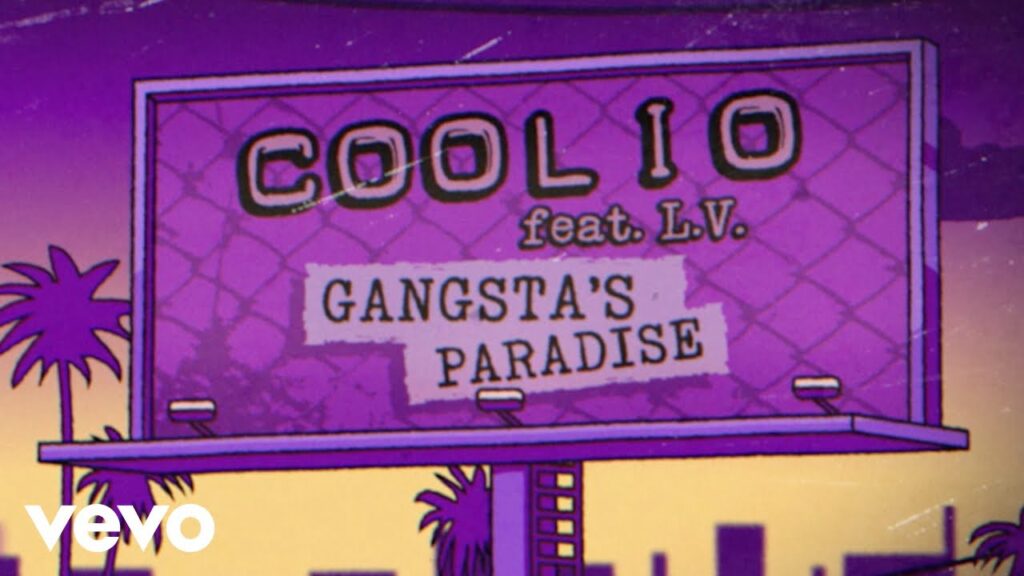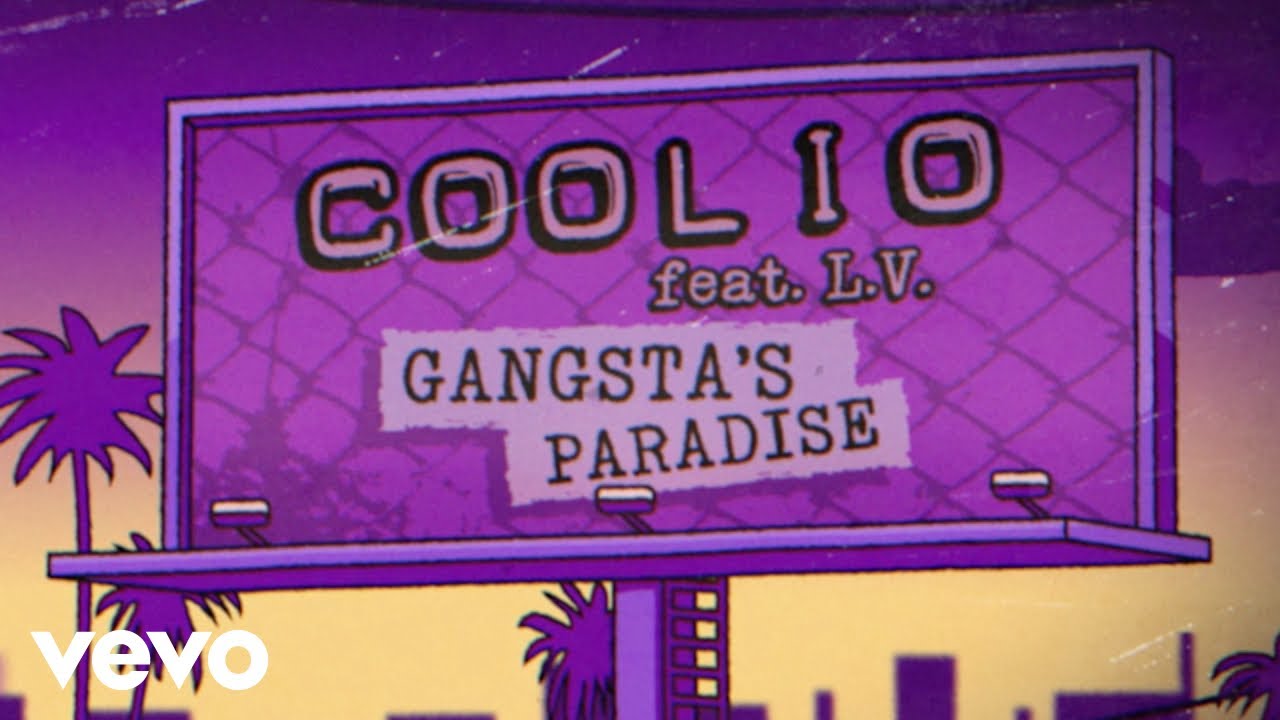
Gangsta’s Paradise Release Date: Unveiling the Iconic Anthem’s Origins
“Gangsta’s Paradise,” a song that transcended genres and generations, remains an indelible part of music history. Its haunting melody, coupled with Coolio’s poignant lyrics, resonated deeply with audiences worldwide. Understanding the Gangsta’s Paradise release date is crucial to appreciating the song’s impact and context within the cultural landscape of the mid-1990s. This article delves into the specifics of the Gangsta’s Paradise release date, its historical significance, and the enduring legacy of this iconic track. We will explore the journey of “Gangsta’s Paradise” from its inception to its current status as a timeless classic.
The Genesis of a Classic: From Soundtrack to Standalone Hit
The story of “Gangsta’s Paradise” begins not as a standalone single, but as a key component of a major motion picture soundtrack. The song was specifically created for the 1995 film “Dangerous Minds,” starring Michelle Pfeiffer. The film, which dealt with issues of inner-city education and social challenges, needed a powerful and evocative theme song. The Gangsta’s Paradise release date, therefore, is intricately linked to the film’s promotional timeline.
Coolio, along with producer Doug Rasheed and singer L.V., collaborated to craft a song that captured the film’s themes of struggle, hope, and the harsh realities of urban life. The track famously samples Stevie Wonder’s “Pastime Paradise,” adding a layer of soulful introspection to the hard-hitting lyrics. This blend of musical elements proved to be a winning formula, setting the stage for the song’s monumental success. The selection of Stevie Wonder’s song as a sample was a stroke of genius, adding depth and familiarity to the new track.
Official Gangsta’s Paradise Release Date Details
The official Gangsta’s Paradise release date was in August 1995. While the precise day may vary slightly depending on the region and format (radio, music video, physical single), the general consensus is that the song was unleashed upon the world during that month. This timing was strategically aligned with the release of “Dangerous Minds,” maximizing the song’s exposure and impact. The film’s release date was August 11, 1995, and the single preceded it, building anticipation for the movie.
The music video, directed by Antoine Fuqua, further amplified the song’s message. Featuring Michelle Pfeiffer reprising her role from the film, the video depicted scenes of urban life and the challenges faced by students in underprivileged communities. The visual representation of the song’s themes helped to solidify its connection with audiences and cemented its place in popular culture. The music video played a significant role in the song’s rapid ascent to the top of the charts. [See also: Best Music Videos of the 90s]
Impact and Reception: A Global Phenomenon
Upon its release, “Gangsta’s Paradise” quickly ascended the music charts, becoming a global phenomenon. It topped the Billboard Hot 100 chart for three weeks, solidifying Coolio’s status as a major recording artist. The song’s success extended far beyond the United States, reaching number one in numerous countries, including the United Kingdom, Ireland, France, Germany, Italy, Sweden, Austria, Netherlands, Norway, Switzerland, Australia, and New Zealand. The widespread appeal of “Gangsta’s Paradise” demonstrated its ability to resonate with audiences across diverse cultural backgrounds. The song’s universal themes of struggle and hope transcended geographical boundaries.
Critics lauded “Gangsta’s Paradise” for its lyrical depth, its poignant portrayal of urban life, and its seamless integration of the Stevie Wonder sample. The song was praised for its ability to address serious social issues without sacrificing its musical appeal. Many viewed it as a powerful commentary on the realities faced by individuals living in disadvantaged communities. The combination of Coolio’s rapping and L.V.’s soulful vocals created a unique and compelling sound that resonated with listeners. The critical acclaim further boosted the song’s popularity and cemented its place in music history.
Awards and Accolades: Recognizing a Masterpiece
The accolades for “Gangsta’s Paradise” poured in following its release. The song won a Grammy Award for Best Rap Solo Performance in 1996, solidifying its status as a critical and commercial triumph. It also won an MTV Video Music Award for Best Rap Video and was nominated for numerous other awards. These accolades recognized the song’s artistic merit and its cultural impact. The Grammy win was a particularly significant achievement, as it validated the song’s place within the broader musical landscape. The recognition from the music industry further cemented the Gangsta’s Paradise release date as a pivotal moment in music history.
The Enduring Legacy of Gangsta’s Paradise
Decades after its Gangsta’s Paradise release date, the song continues to resonate with audiences. It remains a staple on radio stations and streaming platforms, and it is frequently featured in films, television shows, and commercials. The song’s enduring popularity is a testament to its timeless quality and its ability to connect with listeners on a deep emotional level. The themes explored in “Gangsta’s Paradise” – poverty, violence, and the search for hope – remain relevant today, ensuring that the song will continue to be appreciated by future generations.
“Gangsta’s Paradise” has also been covered and sampled by numerous artists, further demonstrating its influence on popular culture. Its impact can be seen in the works of contemporary rappers, singers, and producers who have drawn inspiration from its unique sound and its powerful message. The song’s legacy extends beyond the realm of music, influencing art, fashion, and social commentary. [See also: Songs That Defined the 90s]
Gangsta’s Paradise: More Than Just a Song
In conclusion, the Gangsta’s Paradise release date marks the beginning of a cultural phenomenon. More than just a song, “Gangsta’s Paradise” became an anthem for a generation, a voice for the voiceless, and a testament to the power of music to transcend boundaries. Its enduring legacy is a reminder of the importance of addressing social issues through art and of the ability of music to inspire hope and change. The song’s impact on the music industry and on popular culture is undeniable, and its influence will continue to be felt for many years to come. Remembering the Gangsta’s Paradise release date helps us appreciate the context and significance of this iconic track. The song is a powerful reminder of the struggles and triumphs of urban life, and its message remains as relevant today as it was in 1995. The Gangsta’s Paradise release date will forever be etched in music history as the moment when a song captured the hearts and minds of millions around the world. The song’s continued popularity is a testament to its timeless quality and its ability to connect with listeners on a deep emotional level. The Gangsta’s Paradise release date is a significant milestone in the history of hip-hop and popular music. The impact of the Gangsta’s Paradise release date continues to be felt today, as the song remains a cultural touchstone. Reflecting on the Gangsta’s Paradise release date allows us to appreciate the song’s enduring legacy and its profound impact on society. The Gangsta’s Paradise release date signifies the birth of an anthem that continues to inspire and resonate with audiences worldwide. The Gangsta’s Paradise release date is a reminder of the power of music to transcend boundaries and to address important social issues. The Gangsta’s Paradise release date marks the beginning of a cultural phenomenon that continues to shape the landscape of popular music. The Gangsta’s Paradise release date is a testament to the enduring legacy of Coolio and the timeless quality of his music. The Gangsta’s Paradise release date will forever be remembered as a pivotal moment in the history of hip-hop.
